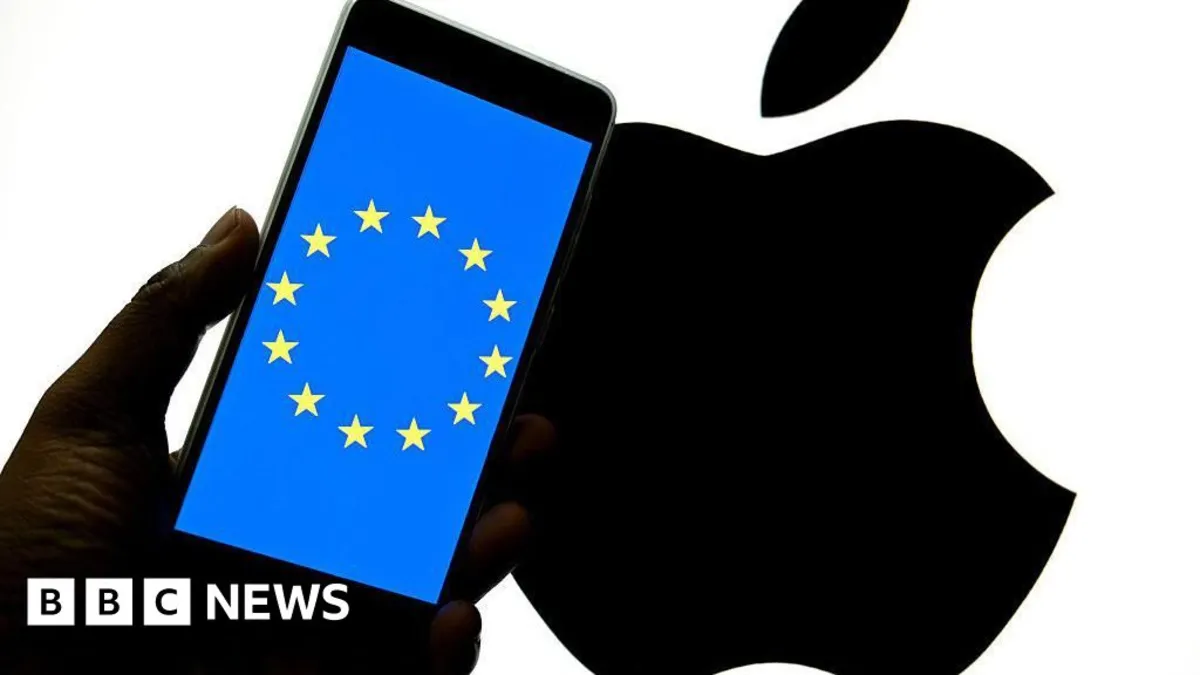
The European Union has officially mandated that tech giants Apple and Meta pay a combined fine of €700 million (£599 million) as part of its efforts to regulate the influence of big tech companies. This significant penalty includes a €500 million (£428 million) fine directed at Apple for its practices related to the App Store, while Meta faces a €200 million (£171 million) fine concerning its user consent processes for data collection.
The European Commissioner, Henna Virkkunen, emphasized the EU's responsibility to safeguard the rights of its citizens and foster innovation within Europe. This enforcement action marks the first major penalties issued under the Digital Markets Act (DMA), a regulatory framework established to ensure fair competition in the tech sector. The European Commission initiated investigations into both companies last year, aiming to address perceived violations of the DMA.
The case against Apple centers around its App Store policies, which the Commission claims restrict users and app developers from accessing alternative app marketplaces. The Commission argues that this practice constitutes a breach of the DMA, which seeks to promote market accessibility and competition.
In Meta's case, the fine relates to its controversial consent or pay model, which required users to choose between consenting to extensive data collection across platforms like Facebook and Instagram or paying a monthly subscription fee. The Commission contends that this model does not allow for genuine user consent regarding data usage, which is a fundamental principle of the DMA.
In response to the ruling, Meta expressed strong discontent, suggesting that the EU's actions unfairly target successful American companies while allowing European and Chinese firms to operate under different standards. The company stated that these regulatory changes impose a significant financial burden, essentially a multi-billion-dollar tariff, and force them to provide inferior services.
Apple also voiced its objections, arguing that the European Commission's decisions compromise user privacy and security. The company accused regulators of shifting criteria during discussions, claiming that such actions undermine the integrity of its business model by forcing it to relinquish proprietary technology.
While the fines may seem modest compared to the vast revenues generated by these tech companies, they are crucial in the current global economic landscape. The situation is further complicated by the ongoing scrutiny from the U.S. government of major tech firms over alleged monopolistic practices. Legal expert Anne Witt from EDHEC Business School noted that these regulatory measures reflect a broader trend of European authorities asserting control over U.S. companies operating within their jurisdiction.
Interestingly, the ruling has garnered support from other industry players such as Epic Games, the creators of Fortnite. CEO Tim Sweeney hailed the decision as a victory for app developers globally, advocating for similar legislation in the U.S. that would allow developers to bypass Apple’s App Store fees.
Conversely, some U.S.-based think tanks, funded by major tech firms including Apple and Meta, criticized the EU's approach. The Information Technology and Innovation Foundation argued that the DMA serves primarily as a revenue extraction tool from American companies, raising concerns about international regulatory fairness.
Both Apple and Meta are now facing a 60-day deadline to comply with the DMA regulations or risk incurring additional fines. The Commission will continue to evaluate Meta’s new advertising options, which reportedly utilize less personal data, in light of their compliance with the DMA.
This regulatory episode underscores the EU's commitment to enforcing its digital market regulations and the potential ripple effects on global tech operations.